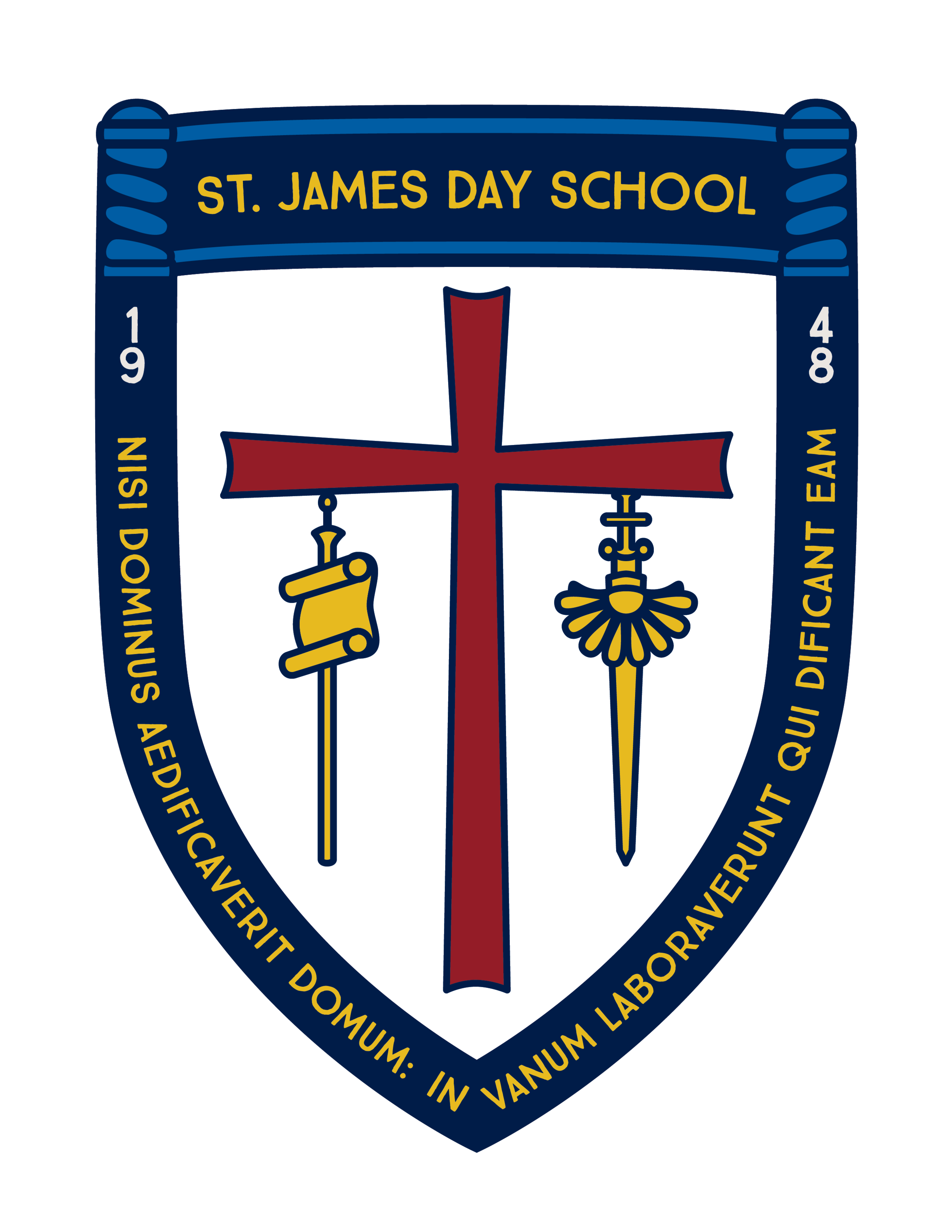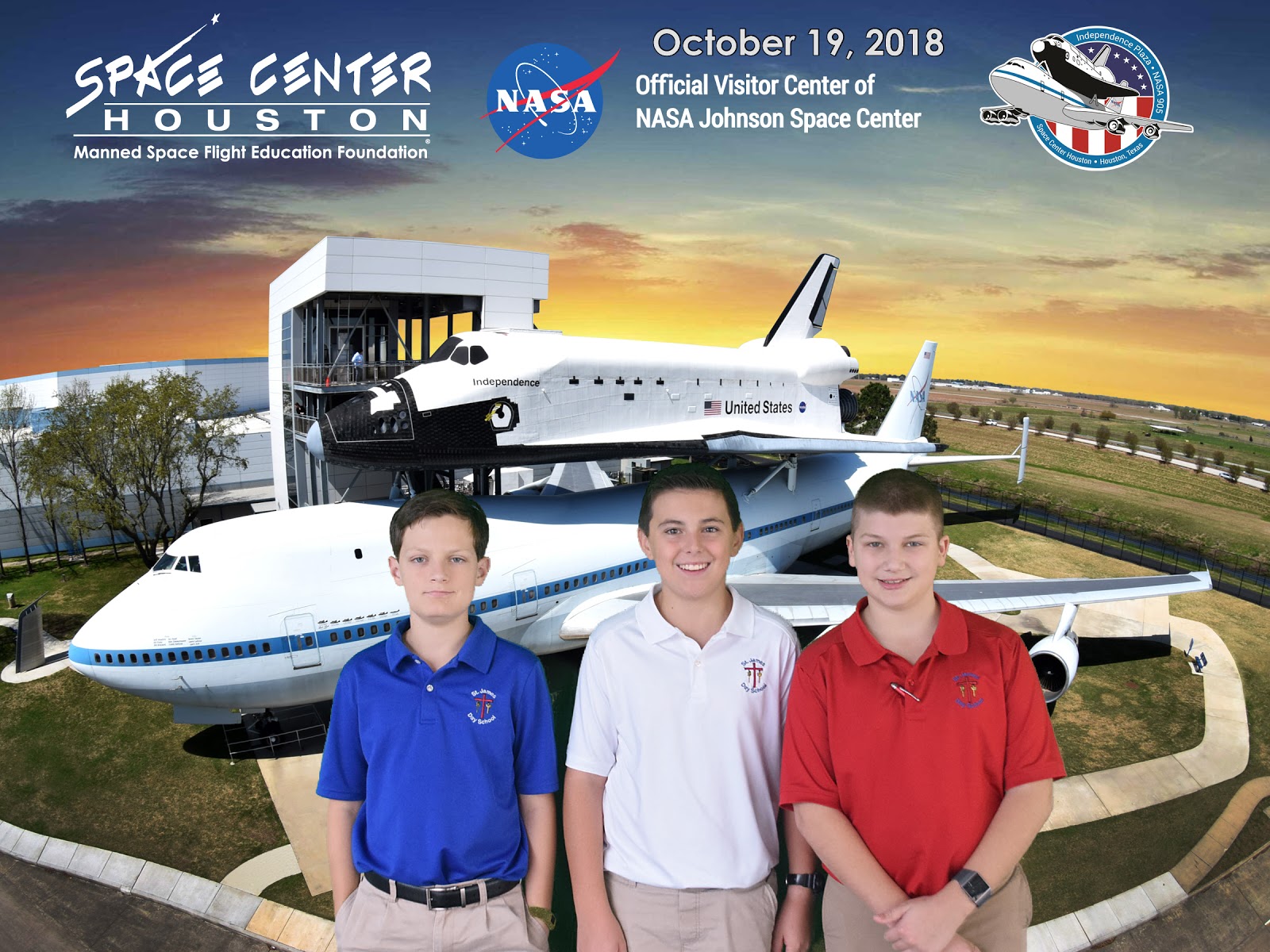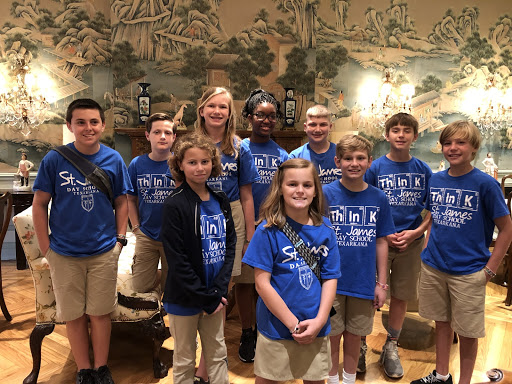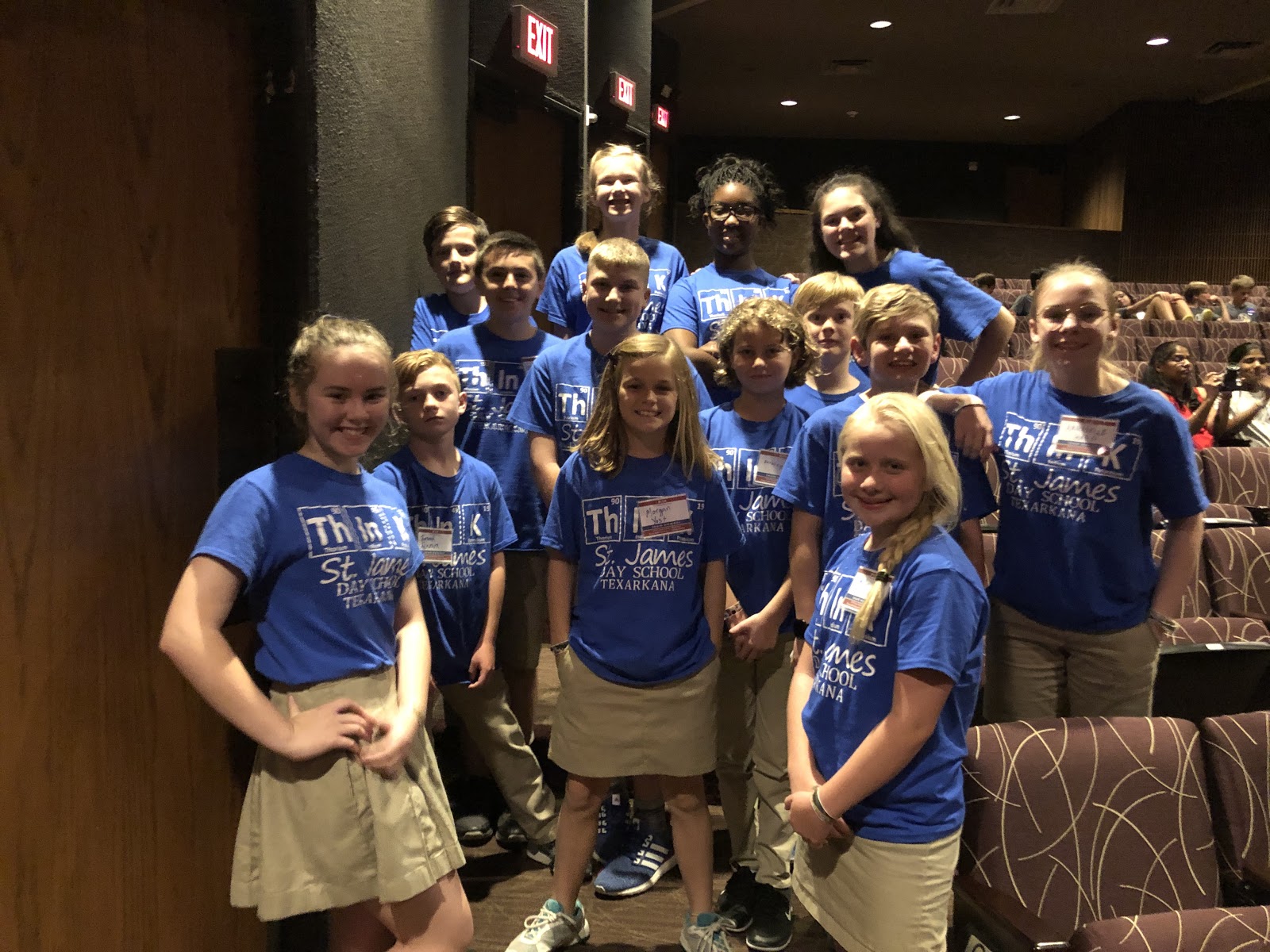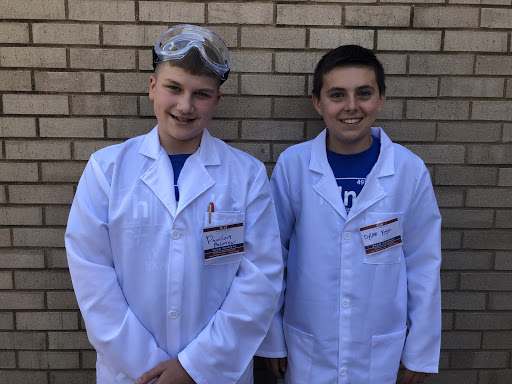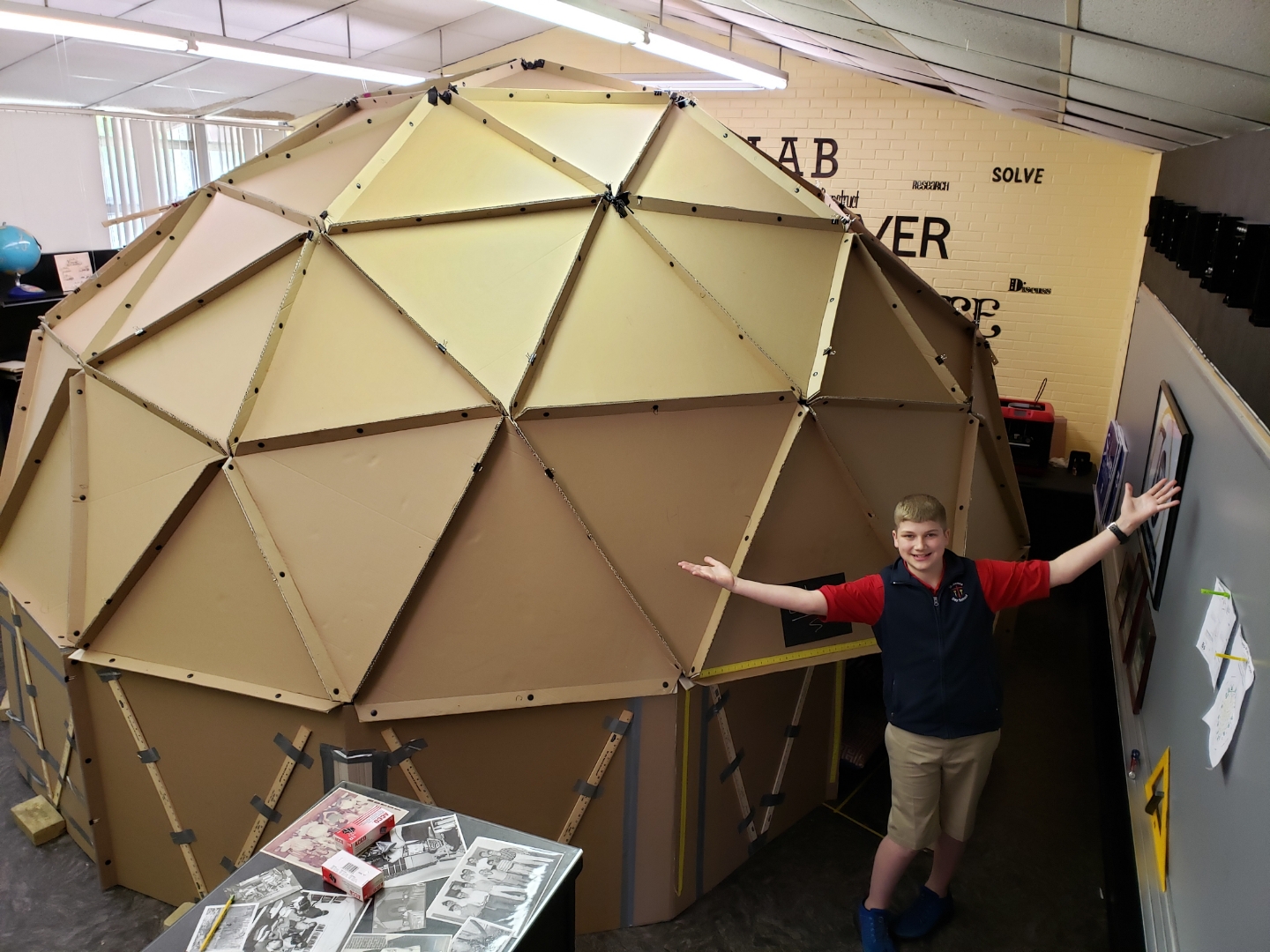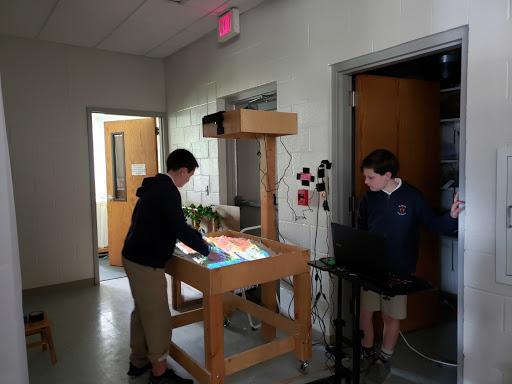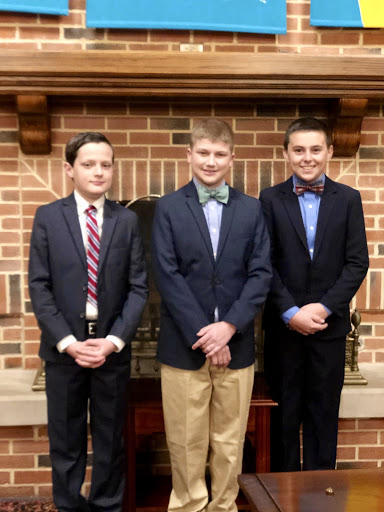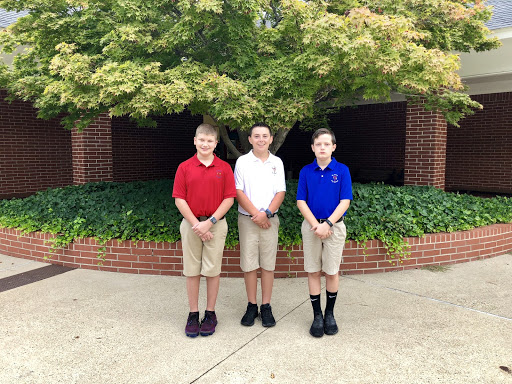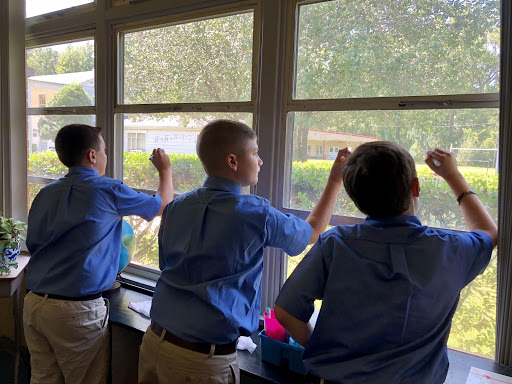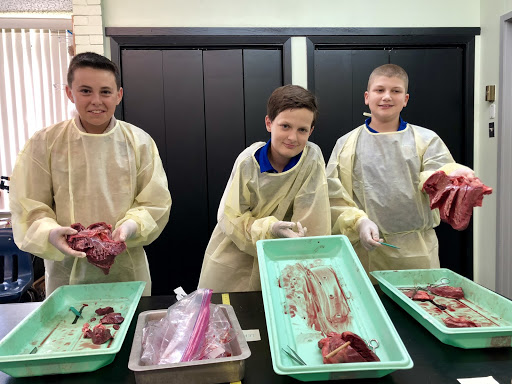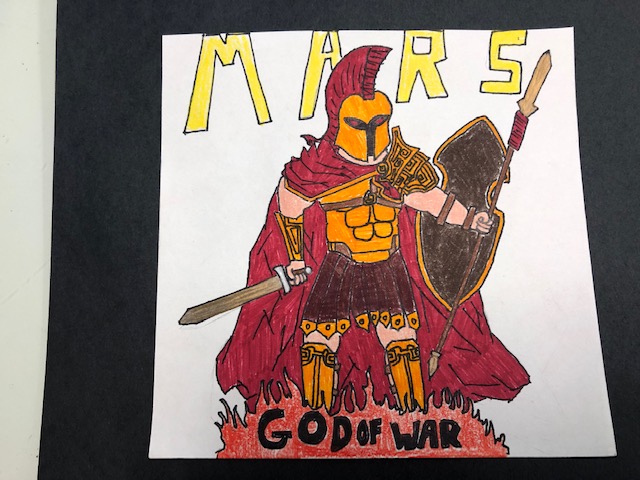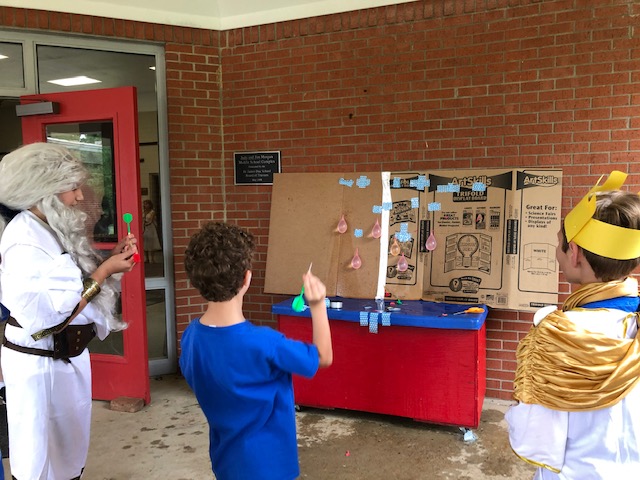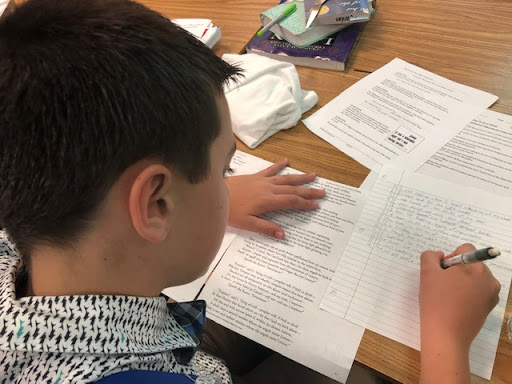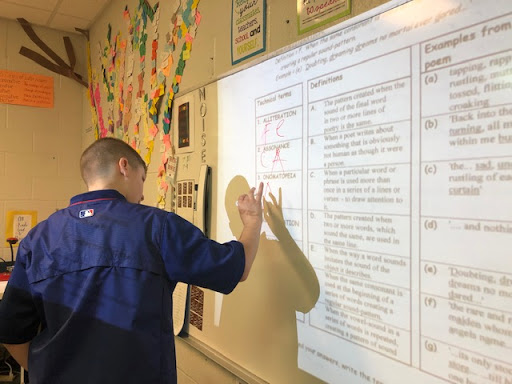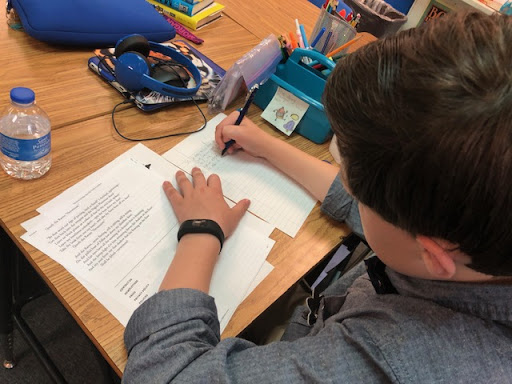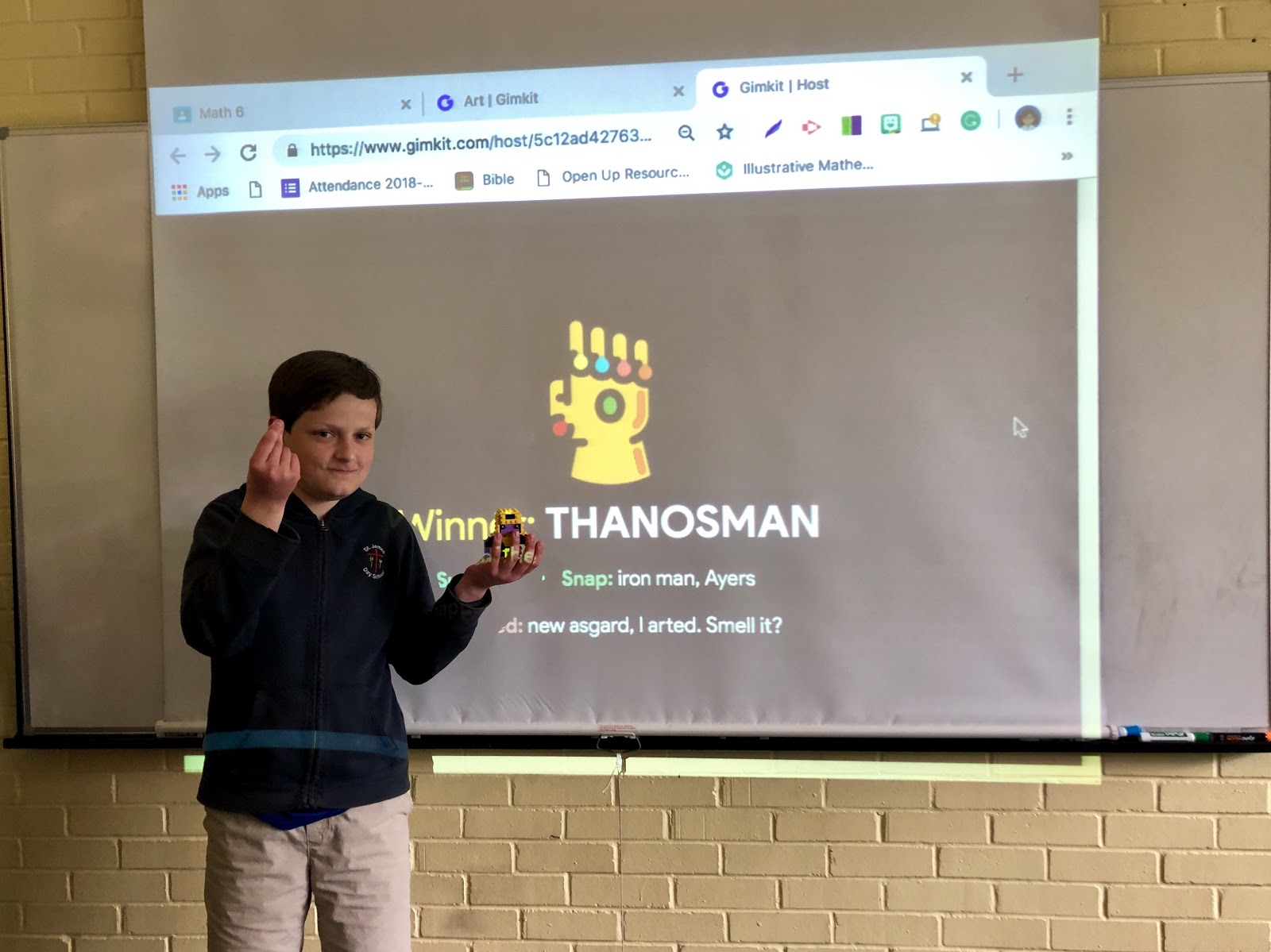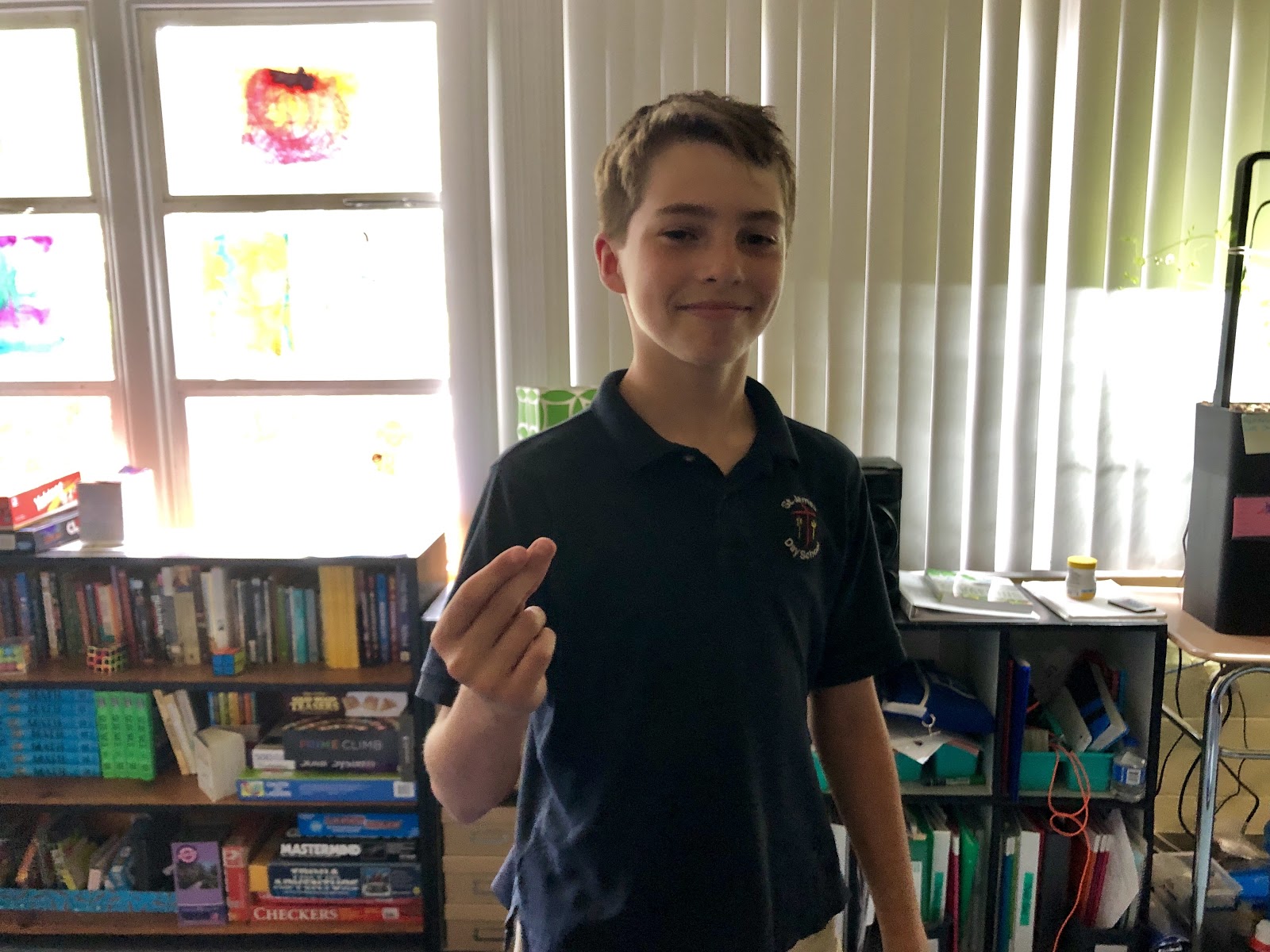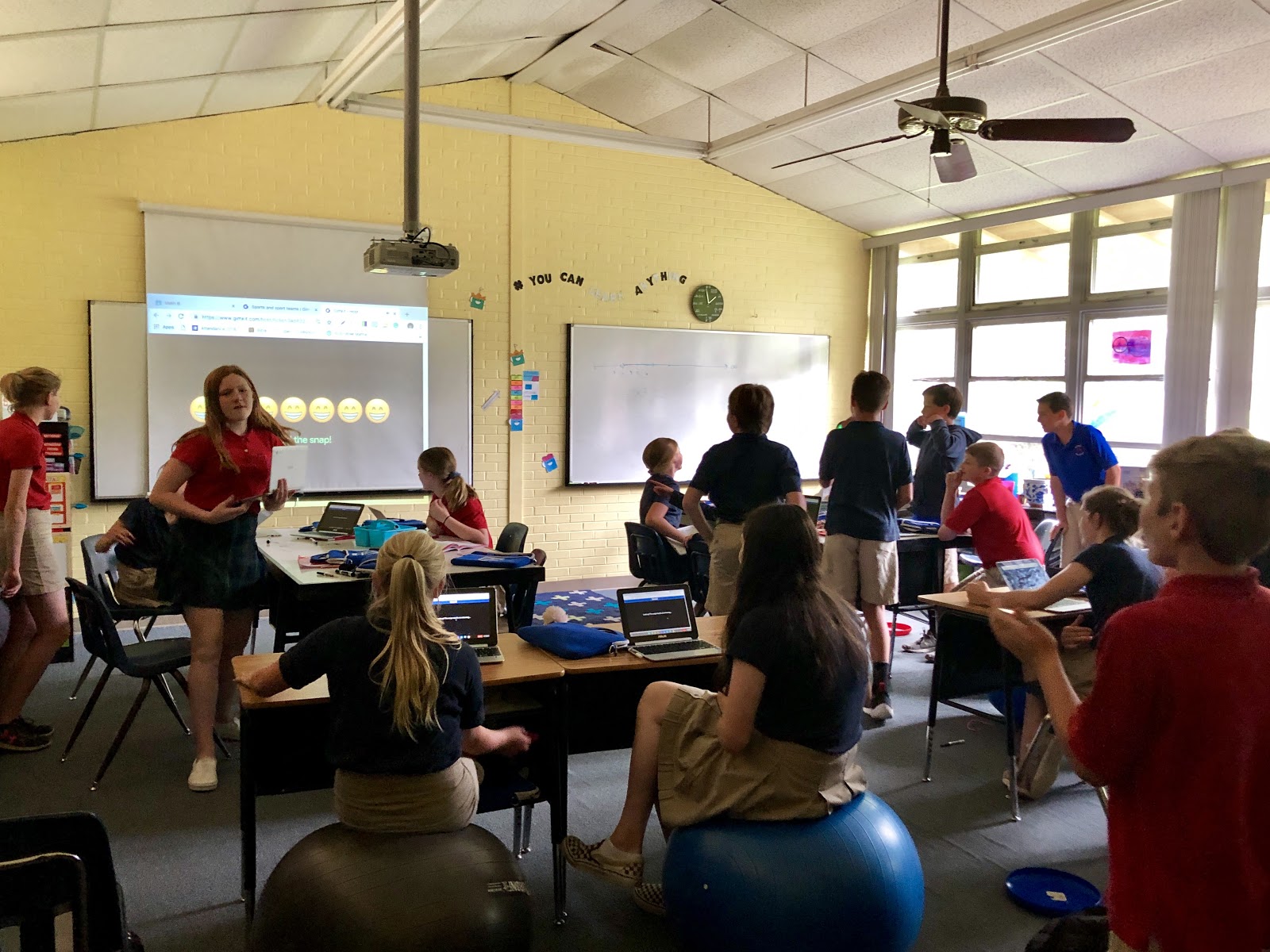MATH AND SCIENCE:
It’s hard to believe we have come to the end our first year of having a seventh grade class at St. James Day School. Three young men and their families took a leap of faith committing to this new program, and together we have enjoyed countless learning adventures. We established new traditions and experiences for future seventh grade students, and we look forward to forging a trail for the eighth grade program next year! Here are some of the students’ favorite memories as the inaugural seventh grade class…
I loved 7th grade because we got to go to Houston and Little Rock, Fort Worth and Louisiana. I liked Science Olympiad and Quiz Bowl and hope to do all the same stuff next year. Overall I have enjoyed 7th grade here.
This year has been great. Some of the things I have enjoyed are the Little Rock trip and the Huston trip. Also Science Olympiad has been fun going to Dallas, College Station, and Ruston. Getting to go tour Texas A&M was really cool. Next year I hope we get to go to University of Texas for an invitational, and I hope we can go to Washington, D.C.
This year we did a lot. We went to Houston for a drone presentation, and while we were there we went to NASA and the Neutral Buoyancy Lab. We also went to Fort Worth and College Station for Science Olympiad. This year we used Open Up Resources for math, and I think I learned a lot. Open Up is a good new curriculum. Also there were only 3 students in my class!
LANGUAGE ARTS AND HISTORY:
A small, but mighty trio of students comprised the 7th grade this year, and I truly enjoyed teaching them. We continued the St. James tradition of whole-child learning and development, but on a middle-school appropriate level. The boys read seven diverse literary works this year, including both classic and contemporary novels, a drama, and an autobiography. We engaged in rich discussions about theme and literary elements, and the students produced thoughtful reading responses. They learned about world civilizations, studying both Eastern and Western cultures and religions, with an emphasis on the Renaissance and its most influential figures. Seventh graders also completed their second Latin book, and began their third, developing their story translation skills further. We rounded out our Latin studies with the annual Roman Feast and Carnival, which involved multi-faceted project-based learning. Students selected a deity or monster, researched him or her (or shall I say “it”), and then chose a mini-project to apply their research. Students produced colorful comic book style drawings, fancy dinner party invitations, and versatile diary entries and group newsletters showcasing their deities’ personalities. Next, split into correlating teams with fifth and sixth graders, students designed a carnival activity that complemented their deities’ skills and behaviors. With the assistance of the 4th graders, the deities hosted the Carnival for all of the younger students. Overall, teaching these three students has been a pleasure, and I look forward to another year of interesting discussions in 8th grade!
